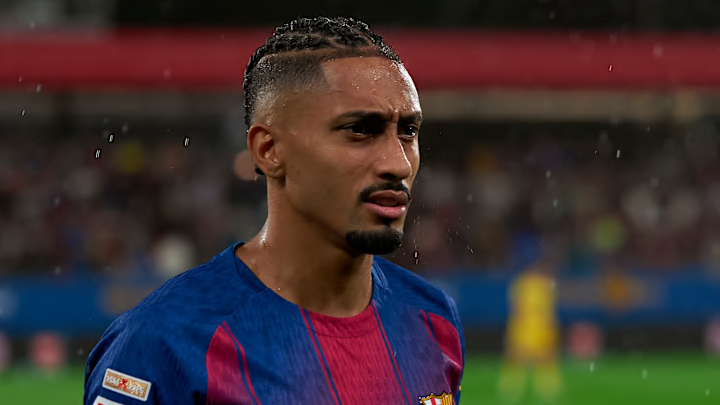The void left by one player has been acutely felt in recent weeks, as Barcelona’s attack turned blunt and their defensive pressing faltered, costing them crucial goals.
That critical missing piece could be put down to an injury to Raphinha, who has been out of action since the victory over Real Oviedo in September. Today, however, the wait is nearly over as the Brazilian winger returned to training. Marking his possible and highly anticipated re-entry into the matchday squad, just in time for a trip to the Santiago Bernabeu.
The immediate question is whether it would be too great a risk to throw a player sidelined for over a month straight into the mix, either in the starting XI or off the bench. His inclusion will be heavily contingent on the fitness of Ferran Torres, who has been managing a muscle overload himself.
Raphinha's presence offers crucial tactical flexibility, potentially allowing an in-form player like Fermín López to solidify his role centrally, a safer bet than relying on youth talent, particularly in the name of Toni Fernandez, for a fixture of this magnitude despite his recent performance against Olympiacos. Should that happen then Raphinha can offer something from the bench, potentially when Rashford or Fermin Lopez tire within the game.
Should Torres be ruled out, the manager must choose between keeping to the previous line-up, pushing the key midfielder Pedri into a more advanced attacking role, or taking the ultimate gamble on starting Raphinha. There is no doubt that starting a player following a period out carries inherent risks due to the need to quickly reach match intensity and "shake off the cobwebs," especially one of Barcelona's biggest games of the season.
The most immediate concern is the player's physical vulnerability. A muscle injury, particularly one sustained more than a month ago, is likely to require more than a few training sessions for full match resilience. Throwing Raphinha directly into the intense, high-octane pressure cooker of an El Clásico, where explosive sprints and aggressive challenges are the standard for 90 minutes, dramatically escalates the chance of an immediate recurrence.
Furthermore, his lack of match sharpness, separate from pure fitness, could lead to a split-second delay in reaction or decision-making that could bring about a fatal flaw when facing a high-pressing, world-class opposition like Real Madrid.
This gamble is amplified by the intensity of the fixture and the dislike of the opposition. Real Madrid, as one of the best teams in the league, will no doubt look to exploit any weakness especially if the game remains tight. Consistency and rhythm are non-negotiable in this fixture, and the decision to start Raphinha could mean disrupting a starting XI that, while struggling for goals, at least have been grinding out wins.
The manager must weigh the potential upside of Raphinha’s individual brilliance against the high probability of Madrid exploiting his potential fitness gap to gain a decisive advantage on his flank. But, in Hansi Flick and Barcelona managment we trust, whether he starts or comes in the decision will utimately (hopefully) lead in victory.
